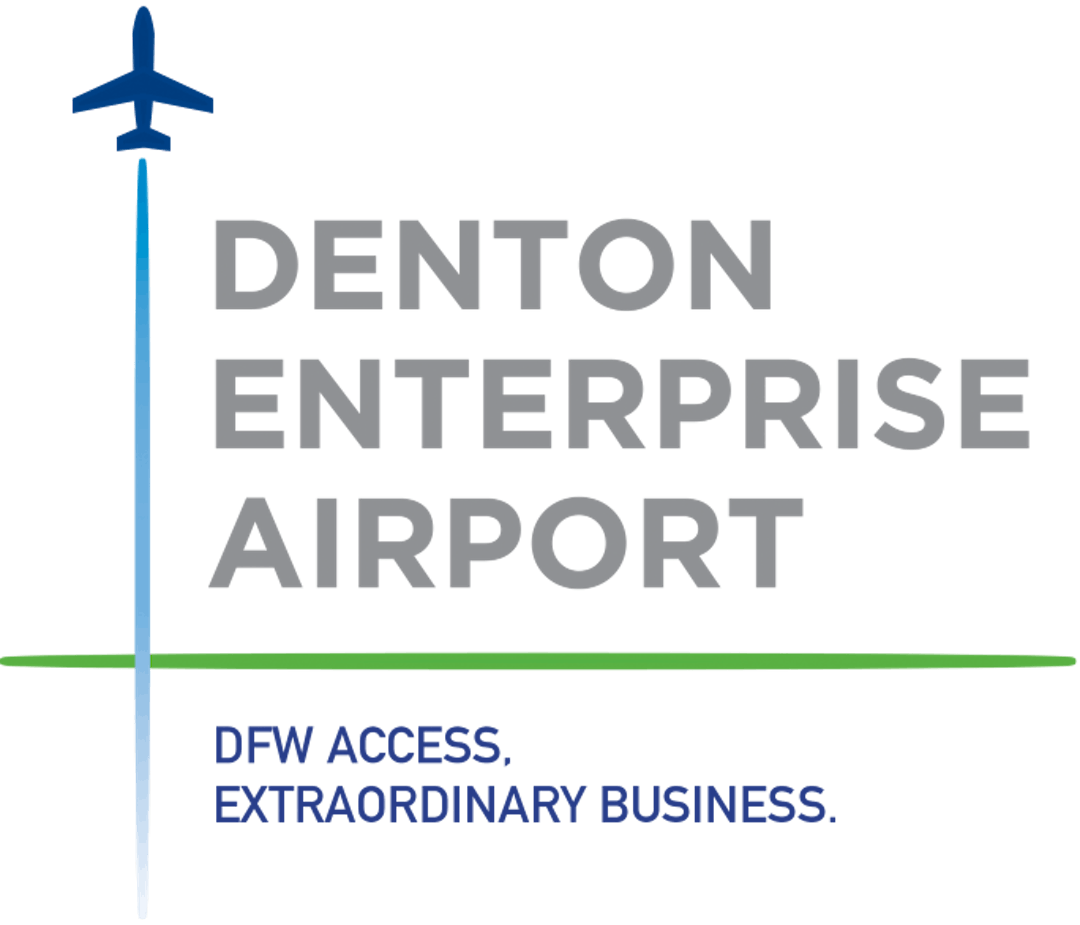2024 Airport Rates and Fees Discussion
Consultation has concluded

As a vital hub for General Aviation, Denton Enterprise Airport is dedicated to supporting our users, tenants, and businesses with the services, infrastructure, and amenities essential to your operations. We recognize that any potential adjustments to Airport rates and fees are of considerable interest to those who rely on our facilities, and we approach this discussion with a commitment to openness and transparency.
This information hub provides resources that detail the financial factors currently shaping Airport operations. Like many General Aviation airports, we face rising costs related to infrastructure upkeep, regulatory compliance, and essential improvements to maintain safety, efficiency, andContinue reading
As a vital hub for General Aviation, Denton Enterprise Airport is dedicated to supporting our users, tenants, and businesses with the services, infrastructure, and amenities essential to your operations. We recognize that any potential adjustments to Airport rates and fees are of considerable interest to those who rely on our facilities, and we approach this discussion with a commitment to openness and transparency.
This information hub provides resources that detail the financial factors currently shaping Airport operations. Like many General Aviation airports, we face rising costs related to infrastructure upkeep, regulatory compliance, and essential improvements to maintain safety, efficiency, and sustainability. These realities drive our need to periodically review airport rates and fees to ensure we can continue providing reliable and quality services.
We invite you to explore the information on this page to gain insight into the financial challenges and operational considerations that inform this review process. Our goal is to ensure a well-informed, productive dialogue around any changes that may be proposed.
- Review the Background Information below
- Read the General Aviation Fee Study conducted by a third-party consultant (under "Documents")
- View the Overview Presentation delivered to the Airport Advisory Board (under "Documents")
- Ask a question - we're listening.
Thank you for engaging with us as we work together to support the future of our airport community.
-
Impact of Airport Growth
Share Impact of Airport Growth on Facebook Share Impact of Airport Growth on Twitter Share Impact of Airport Growth on Linkedin Email Impact of Airport Growth linkThe Denton Enterprise Airport has experienced substantial growth since 2014. Examples of this growth can be seen in the areas of based aircraft, operations, and the enhancements to infrastructure to support operations such as a 2019 addition of a parallel runway and the 2024 reconstruction of the main runway.

The image above illustrates this growth period. Over the past four years our flight operations have grown considerably, from an average of 150,000 per year to over 200,000 per year. Projections included in the 2024 Master Plan view this trend as continuing. Over 240,000 operations are expected in the year 2029 while that number will increase to over 320,000 operations in 2044. The number of based aircraft, which can be used as an approximation of overall airport development, have increased from less than 300 in 2020 to over 400 today. Those numbers will continue to increase with 475 based aircraft expected in the year 2029 and 717 based aircraft expected in 2024.
The 2021 Pavement Study identified a number of pavement segments that continue to require rehabilitation or reconstruction, the cost of which would exceed $22 million (in 2021 dollars). An additional 22 pavement segments require significant maintenance at a cost of over $1.5 million (in 2021 dollars). Future infrastructure needs will only increase as airport activity increases, and will include taxiway and taxilane rehabilitation, vehicular roadway maintenance, rehabilitation or replacement of the air traffic control tower, and drainage and storm water improvements.
The growth in airport activity, along with current and future infrastructure needs, are a significant driver of operational and capital costs for the airport.
-
Current Economic and Regulatory Conditions
Share Current Economic and Regulatory Conditions on Facebook Share Current Economic and Regulatory Conditions on Twitter Share Current Economic and Regulatory Conditions on Linkedin Email Current Economic and Regulatory Conditions linkEconomic Conditions
In addition to growth, Denton Enterprise Airport has faced general economic conditions that create challenges in funding operations and infrastructure. The general economy has seen a trend of rising inflation and cost of goods particularly in the construction industry. Increase borrowing rates and increase cost of labor and services also adversely impact the Airport's ability to fund improvements, utilize technology, or source airport services.
The attached image provides an example of the 5-year history of inflation rates and several important categories of construction supplies. While interest rates and supply costs have stabilized in the last 1-2 years, the impact of increases experienced in 2020-2022 continue to elevate costs.
Regulatory Conditions
As an enterprise operation, the airport has the obligation to cover its expenses through airport revenues. In other words, the cost of running the Airport is to be borne by Airport users, and not the general taxpayer who does not otherwise use the airport. This approach to airport funding yes supported and promoted by FAA Grant Assurance 24. FAA grant assurances are those obligations that an airport must agree to in order to receive FAA funding for large infrastructure projects. Currently that funding covers 90% of a project's cost. FAA Grant Assurance 24 addresses fees and rental structures and states that the airport sponsor will strive to be as "self-sustaining as possible".
In short, as the general economic conditions have continued to drive prices higher, the airport's obligation to fully fund its operations with airport revenues remains unchanged.
-
Airport Financial Condition
Share Airport Financial Condition on Facebook Share Airport Financial Condition on Twitter Share Airport Financial Condition on Linkedin Email Airport Financial Condition link
Airport Revenues
Denton Enterprise Airport derives most of its revenues from rent on ground leases, fuel flowage fees assessed on fixed based operators, hanger and tie down fees assessed on fixed based operators and gas well royalties. The graph below shows an overview of operational revenue since 2014. Overall revenues have shown steady growth has been driven by lease revenues, hangar rentals, and tie down fees. Fuel flowage revenues have remained flat and highly variable, despite the substantial growth in airport operations and based aircraft.

Revenues from airport gas leases can best be described as highly inconsistent. The graph below shows revenues from this source over the last 10 years. While two of those years show revenues at or above $1 million, most years will show revenues at $400,000 or less. Of concern is the overall downward trend of these revenues during that time. It is the Airport's assessment that the gas lease revenues cannot be counted on for future ongoing operational costs, due to its unpredictable and variable nature.

Airport Expenditures
Expenditures for the Airport can generally be categorized as personnel-related, operational and supply costs, cost of service payments, and debt service payments. Over the past 10 years, operational costs have remained relatively stable. The airport fund began making payments on its own debt service in 2021, and the key driver of expenditures has primarily been infrastructure project-related debt. Prior to this, the city of Denton general fund made these payments which were supplemented by gas lease revenue.

While the airport can fund its operations through existing revenues, the significant reduction in gas lease revenue coupled with project-related debt payments have presented a significant financial challenge.
The attached proforma, developed as part of the 2024-25 Denton Budget, shows our anticipated revenues and expenditures over the next five years. Currently, future Airport revenues cannot sustain anticipated expenses and, as a result, the airport will utilize and exhaust its fund balance in that time.
Summary of Financial Condition
- There has been substantial operational growth over the previous 10 years that will continue into the future.
- There are significant infrastructure needs that must be addressed
- Increasing costs and declining gas well revenues have created an unsustainable financial outlook.
- The Airport Fund will deplete its reserve in FY2028-29
- Maintaining the status quo with respect to Airport finances is not an option.
-
General Aviation Fee Study
Share General Aviation Fee Study on Facebook Share General Aviation Fee Study on Twitter Share General Aviation Fee Study on Linkedin Email General Aviation Fee Study linkUnderstanding the challenges the Airport faced with respect to its revenues and expenditures, the City engaged Aviation Management Consulting Group (AMCG) to perform a financial analysis of the airport.
The Fee Study
This Financial Analysis would include a General Aviation Fee Study to analyze and make recommendations for the Airport rates and fee schedule. Specifically, the Fee Study would:
- Identify the elements of the existing fees at the Airport
- Identify current industry practices
- Analyze fees and information from comparable and competitive airports
- Provide recommendations regarding methodologies and types of fees
- Provide recommendations regarding fee amounts
The completed study made a number of findings (the full study is available under the "Documents" section) including identifying several common revenue sources not currently utilized by the airport. Importantly, the study illustrates that a cost-center approach is the best means to equitably charge rates and fees. Under this approach, fees would be match to activity categories such that those activities that generate the greatest financial costs to the Airport would provide commensurate revenues through its fees.
Fee Study Recommendations
The Fee Study made a number of recommendations, particularly increasing the Fuel Flowage Fee (charged to FBOs and private fuel farms) and implementing several new fees: a Landing Fee for larger aircraft, an annual Aeronautical Permit Fee for airport businesses, an Airside Access Fee, and a Hangar Wait List fee. It also recommended the Airport to review the rental rates it charges for city owned hangers so that they may be more consistent with what is charged in the private sector.

While the Airport continues to evaluate its fee options, it has determined that implementing most of AMCG's recommendations would eliminate the debt-driven budget deficit expected over the next 5 years.
Key Dates
-
November 13 2024
-
November 20 2024
-
December 04 2024
-
December 11 2024
-
January 14 2025
Who's Listening
-

Phone 9403497744 Email ryan.adams@cityofdenton.com -
JH
Email finance@cityofdenton.com



